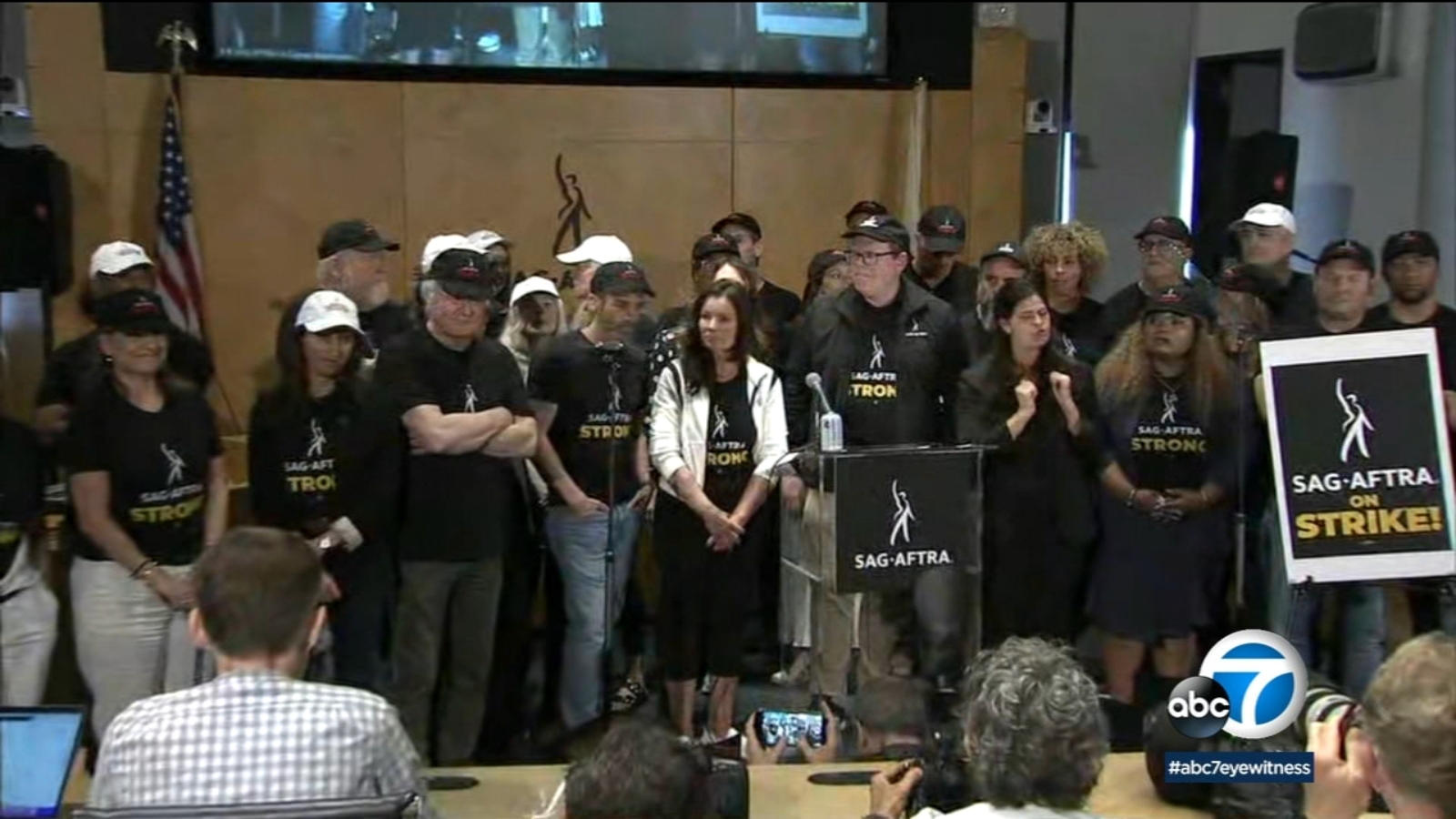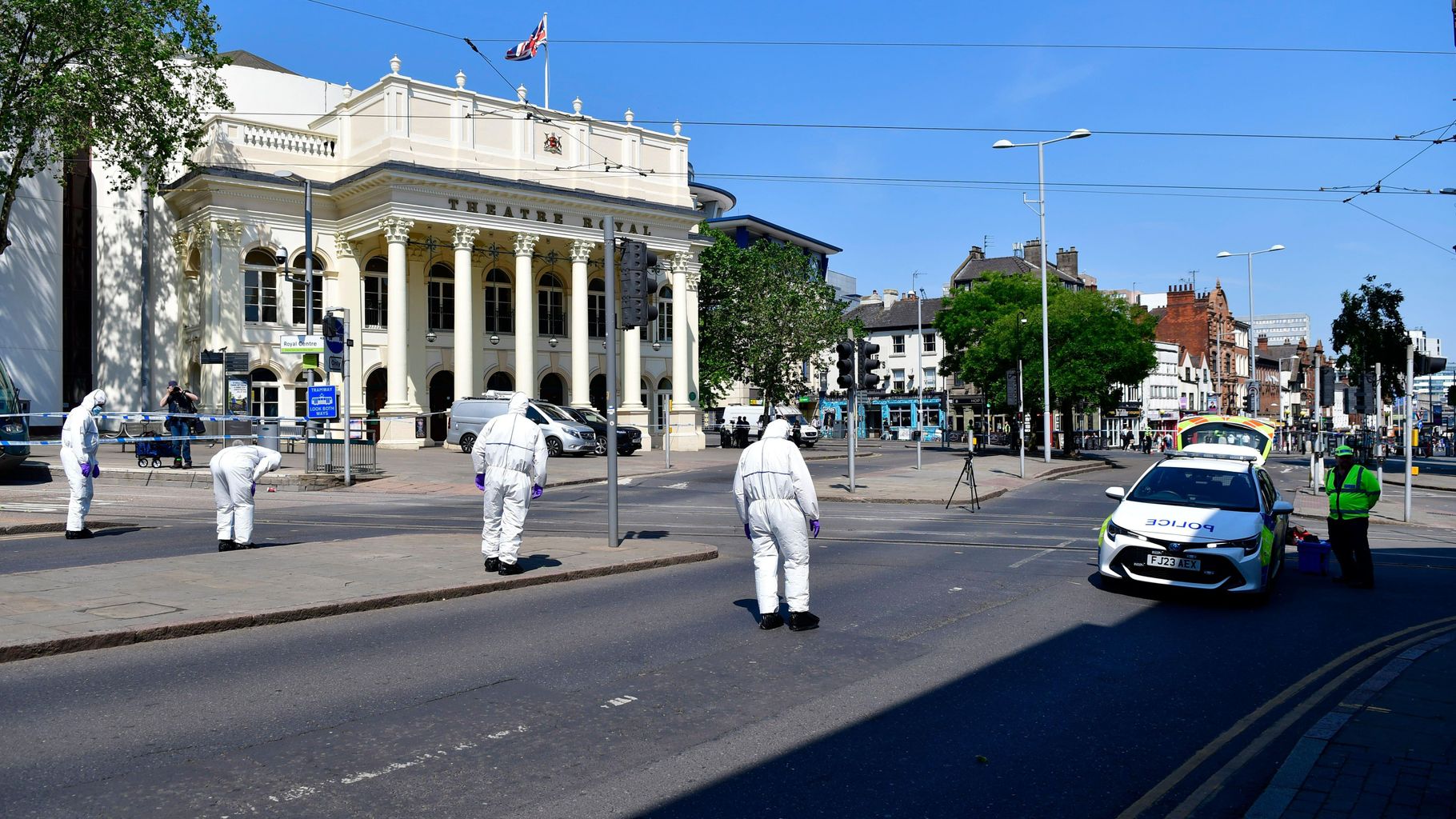Hollywood Shutdown: Writers And Actors On Strike, Impacting Film And TV

Table of Contents
The Core Issues Fueling the Hollywood Shutdown
The Hollywood shutdown is not simply about pay; it's about fundamental changes in the industry landscape and the need for fair compensation in a rapidly evolving entertainment ecosystem. The strike represents a powerful pushback against the perceived exploitation of creative talent in the streaming era.
Fair Wages and Residuals in the Streaming Era
The shift from traditional television models to streaming has drastically altered the compensation structure for writers and actors. While streaming platforms like Netflix, Disney+, and HBO Max boast massive global audiences and generate billions in revenue, the payment models often fail to reflect the success of their shows. The old system of residuals—payments made to actors and writers each time their work is aired—has been significantly diminished in the streaming world. Popular shows that would have generated substantial residual income for cast and crew in the network television era now offer far less, leaving many struggling to make ends meet despite the global success of their work.
For example, the massive success of Stranger Things on Netflix has undoubtedly generated billions of dollars for the platform, yet the actors and writers involved may not receive the same level of compensation as they would have in a traditional network television model. This discrepancy highlights a core issue driving the strike.
- Decreased residuals from streaming platforms.
- Increased use of AI in screenwriting.
- Demand for increased transparency in streaming viewership data.
- Concerns over shorter seasons and the impact on overall compensation.
The Rise of Artificial Intelligence (AI) in the Industry
The rise of artificial intelligence (AI) in the creative process is another major concern fueling the Hollywood shutdown. Both the WGA and SAG-AFTRA are deeply worried about the potential for AI to replace human writers and actors, impacting job security and creative control. The use of AI in writing scripts, generating dialogue, and even creating digital actors threatens to devalue human talent and expertise.
The unions are seeking guarantees that AI will not be used to replace human creativity without proper compensation and safeguards. This includes addressing concerns about copyright and ownership of AI-generated content. This fight is not just about immediate job security; it’s about protecting the future of creative professions.
- Fear of job displacement due to AI.
- Demand for regulation of AI in the creative process.
- Concerns about copyright issues related to AI-generated content.
- Desire for clear guidelines on the ethical use of AI in the entertainment industry.
The Economic Impact of the Hollywood Shutdown
The Hollywood shutdown's ripple effects are being felt far beyond the picket lines. The economic impact is substantial and widespread, affecting numerous businesses and individuals both directly and indirectly.
Production Delays and Cancellations
The strike has brought countless film and television productions to a grinding halt. Major studio projects, both big-budget blockbusters and smaller independent films, are facing significant delays, impacting release schedules and, critically, causing substantial financial losses for studios and production companies. This includes not only the direct cost of lost production time, but also the potential loss of revenue from delayed releases.
- Major film and television projects put on hold.
- Loss of revenue for studios and production companies.
- Negative impact on local economies reliant on film production.
- Uncertainty surrounding the future of already-greenlit projects.
Impact on Related Industries
The entertainment industry is a complex ecosystem. The Hollywood shutdown isn't solely impacting actors and writers; it's also impacting numerous related businesses. Catering companies, transportation services, hospitality businesses, and countless others reliant on the film industry's activity are experiencing significant economic hardship. Job losses in these supporting industries are becoming increasingly prevalent, causing a wider economic downturn.
- Job losses in supporting industries.
- Reduced tourism in film-centric locations.
- Economic downturn in related sectors.
- Increased financial strain on small businesses supporting the industry.
Potential Resolutions and Future of the Hollywood Shutdown
The ongoing negotiations between the studios and the unions are complex and fraught with tension. Finding common ground is essential to resolving the Hollywood shutdown and preventing further economic damage.
Negotiating Table and Potential Outcomes
The core sticking points in the negotiations center on fair wages, residuals for streaming content, and the regulation of AI in the creative process. Both sides need to make concessions to reach a resolution. Potential compromises could include increased transparency regarding streaming viewership data, adjustments to residual payments for streaming content, and the establishment of clear guidelines and regulations concerning AI usage.
- Potential compromises on streaming residuals.
- Discussion of AI usage limitations.
- Negotiations regarding minimum wage increases.
- Discussions surrounding healthcare and pension benefits.
Long-Term Implications for the Entertainment Industry
The Hollywood shutdown will have long-term implications for the industry, regardless of the eventual outcome. It’s forcing a crucial conversation about labor practices, compensation models, and the role of AI in the creative process. The strike may lead to significant changes in industry standards and regulations, impacting the future of work for writers, actors, and other creative professionals.
- Potential for new industry standards and regulations.
- Long-term impact on the creative process.
- The future relationship between studios and unions.
- The potential for increased union power and influence.
Conclusion
The Hollywood shutdown, driven by the WGA and SAG-AFTRA strikes, represents a critical moment for the film and television industry. The issues at stake—fair wages, residuals in the streaming era, and the implications of AI—are fundamentally reshaping the landscape of entertainment. The economic consequences are far-reaching, impacting not only studio budgets and production schedules but also numerous related industries. While the outcome of the negotiations remains uncertain, the strike highlights the urgent need for fair labor practices and a reassessment of the industry's future, especially in the age of streaming and artificial intelligence. Staying informed about the ongoing developments surrounding this Hollywood Shutdown is crucial for understanding the future of entertainment. Keep checking back for updates as this significant event unfolds.

Featured Posts
-
 Police Misconduct Probe Launched Following Nottingham Attacks
May 10, 2025
Police Misconduct Probe Launched Following Nottingham Attacks
May 10, 2025 -
 Otkaz Ot Vizita V Kiev Starmer Makron Merts I Tusk 9 Maya
May 10, 2025
Otkaz Ot Vizita V Kiev Starmer Makron Merts I Tusk 9 Maya
May 10, 2025 -
 Strictly Fallout Wynne Evans No Longer Featured In Go Compare Ads
May 10, 2025
Strictly Fallout Wynne Evans No Longer Featured In Go Compare Ads
May 10, 2025 -
 Three Years Of Data Breaches Cost T Mobile 16 Million In Fines
May 10, 2025
Three Years Of Data Breaches Cost T Mobile 16 Million In Fines
May 10, 2025 -
 Analyzing Metas 168 Million Loss In The Whats App Spyware Lawsuit
May 10, 2025
Analyzing Metas 168 Million Loss In The Whats App Spyware Lawsuit
May 10, 2025
